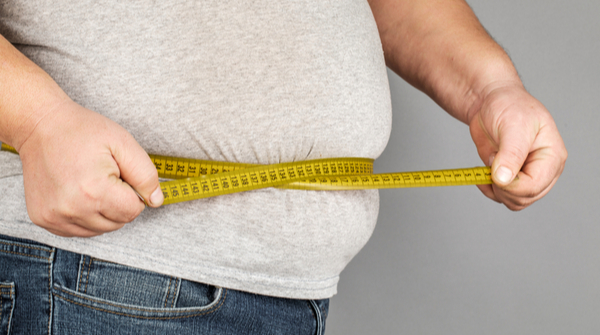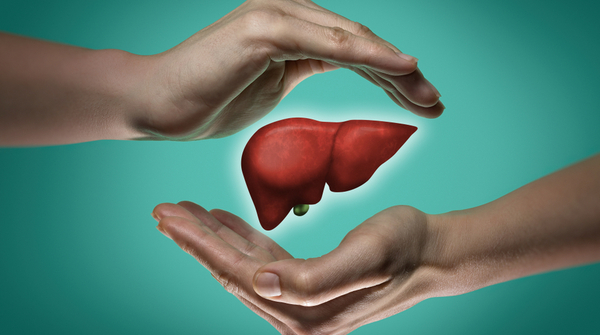Did you know the liver is the second-largest and one of the most complex organs in the body? Everything you consume i.e., eating or drinking, including medicines, passes through your liver. In this blog, we will tell you everything about this complex organ and the relationship between diabetes and liver disease.
What is Liver?
The liver is the largest organ of the body, weighing 1.4 kg (approximately) in the average adult. Located under your diaphragm, the liver is a wedge-shaped spongy organ that has important functions such as regulating blood sugar levels, bile production, and detoxification of the body. Moreover, the liver acts as the primary filter for blood transfused from the digestive tract to the rest of the body.
Out of the multiple functions performed by the liver, here are some of the following functions of a liver:
- Fights illness and infections
- Helps in regulating blood sugar levels
- Detoxification of the body
- Controls the cholesterol levels in the body
- Helping blood to clot
- Releases bile (a liquid that helps in breaking down fat and aids in digestion)
Now that we know the important functions of the liver, one must understand the importance of a properly-functioning liver. Apart from the loss of appetite and weight loss, another common sign is the condition of jaundice, which causes yellowing skin and bilirubin eyes.
Liver’s Response to Stress
When an individual is stressed, the body responds to the situation by releasing hormones from the adrenal glands within the kidney. These hormones then travel to the liver to release stored glycogen. The release of glycogen into the body is the way by which the body is trying to fight or flight in response to a stressful or threatening situation.
Liver’s Response to Exercise
The liver responds to exercise, or any other form of physical activity by regulating the blood sugar levels of the body. When you begin physical activity, the glycogen released in the muscles is used to regularise as a source of fuel. When the body is utilising the glycogen of the muscles, the liver releases glycogen in the body to mobilise the sugar levels. In addition to this, the body also breaks down fat, converting the same into ketones, another source of fuel.
Diabetes and Liver: What is the connection?
Non-alcoholic fatty liver disease is a group of conditions that causes a build-up of fat in the liver, thus causing inflammation of the liver cells. The worsening of the condition can result in serious health complications including cirrhosis and fibrosis of the liver.

Since people with diabetes are known to have obesity issues and insulin resistance to blood sugar, fatty liver disease is thought to be a part of it. Studies have also indicated that at least 50 percent of people with Type 2 diabetes and half of the people who have Type 1 diabetes are observed to have this condition.
Since the fatty liver disease is seen to be observed more in people living with diabetes, the following medical conditions can also increase the possibility of the condition:
- Obesity
- High Blood Pressure
- High Cholesterol
Diabetes and Liver Health: Diagnosis and treatment?
As mentioned above, there are no specific symptoms of fatty liver disease. In order to assess the possibility of the condition, people, especially with high sugar levels, should take a liver enzyme test as part of the regular check-up. In fact, research has indicated that ninety per cent of cases have been detected through the test. Moreover, a computed tomography scan of the abdomen or a liver ultrasound can also help in detecting the condition.
The condition, if and when diagnosed, is not treated differently. This is one of the reasons why doctors do not pin down the diagnosis for additional treatment unless liver enzymes are elevated unexpectedly. Furthermore, the condition is posed to be riskier for people living with diabetes or people with obesity.

What is the treatment?
Fatty liver disease cannot be treated without any medication. In fact, the condition is treated by making lifestyle changes, including losing weight, controlling sugar and cholesterol levels, especially triglycerides – the major kind of fat that causes fatty liver.
Additionally, the medications used to treat diabetes, also known as ‘insulin sensitizers’ have been shown to improve the condition of fatty liver disease.
Diabetes and Liver Health: How to Look After Your Liver?
There are multiple ways to cleanse your liver, mainly with lifestyle changes. However, a diet too, plays a crucial role in improving liver health. Here are some food types that are known for liver cleansing.
- Consume grapefruit, carrot, garlic, green leafy vegetables, apple and walnuts.
- Olive oil is known to be the best for liver health.
- Use lemon or lime juice and drink more green tea.
- Prefer alternative grains including millet, quinoa, and buckwheat.
- Add cruciferous vegetables to your diet including cabbage, cauliflower, and broccoli.
- Use turmeric in most of the foods.
Diabetes and liver health go hand-in-hand; however, this does not mean that having diabetes will automatically result in fatty liver disease. Since the factors that affect sugar levels are the same that automatically increase the risk of fatty liver disease, even treating the factors can help in the prevention of the condition.

Here are a few ways you can lead a healthy lifestyle and keep your liver healthy.
- Eat a healthy and nutritious diet along with regular exercise. It is essential to consume foods from all food groups – proteins, grains, fats, vegetables, dairy products, etc. Additionally, add foods that are rich in fibre to your diet. This includes whole-grain bread, cereals, rice, and fresh fruits.
- Say no to smoking, alcohol, and drugs: Anything in the mentioned category can cause severe harm to your liver cells. It is recommended to even avoid passive smoking.
- Do not start medication before consulting a doctor: Medications, if taken incorrectly or in the wrong combination, can easily damage your liver.
- Take timely vaccinations: Hepatitis is a condition which is described as the inflammation of the liver. Generally caused due to viral infection through over-exposure to alcohol, taking timely vaccinations against the same can prevent the condition.
Read More: A Caregiver’s Checklist For Diabetes Care
A healthy liver is essential for the proper functioning of the body as it keeps the sugar levels in check and prevents excessive fluctuations to prevent further health complications.





